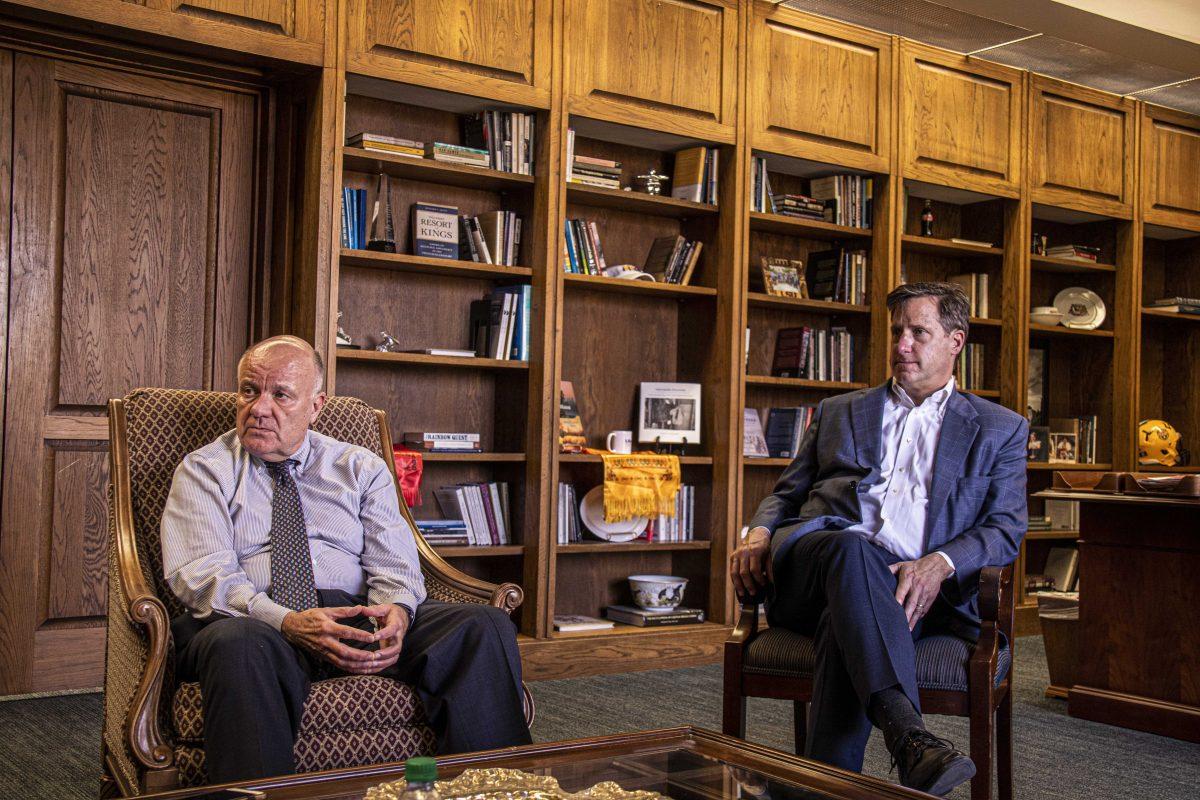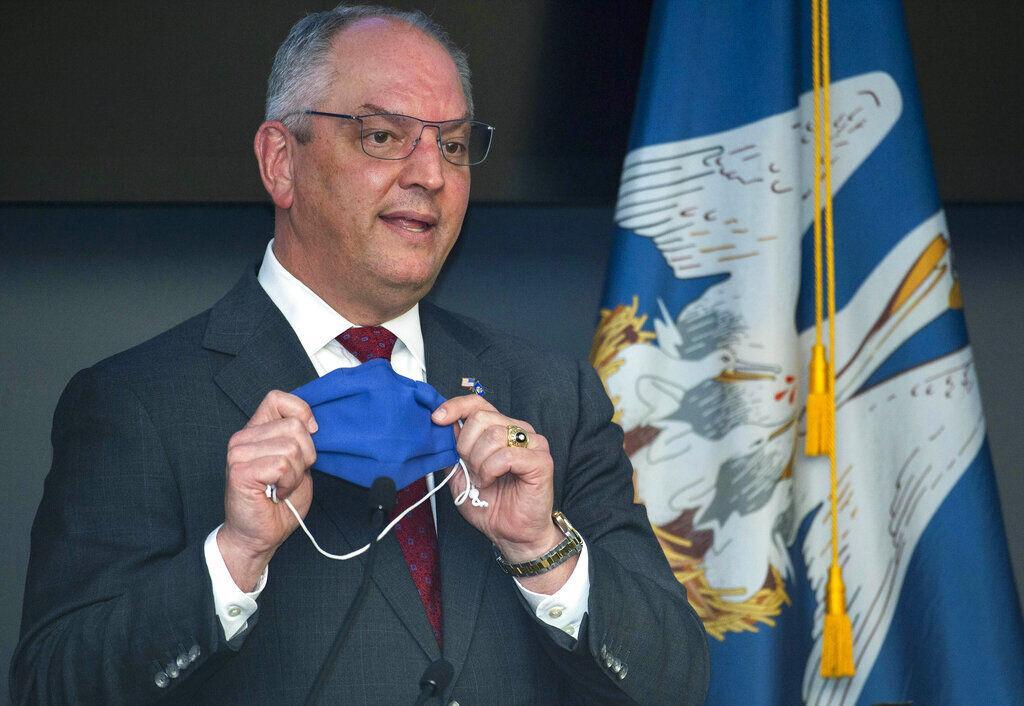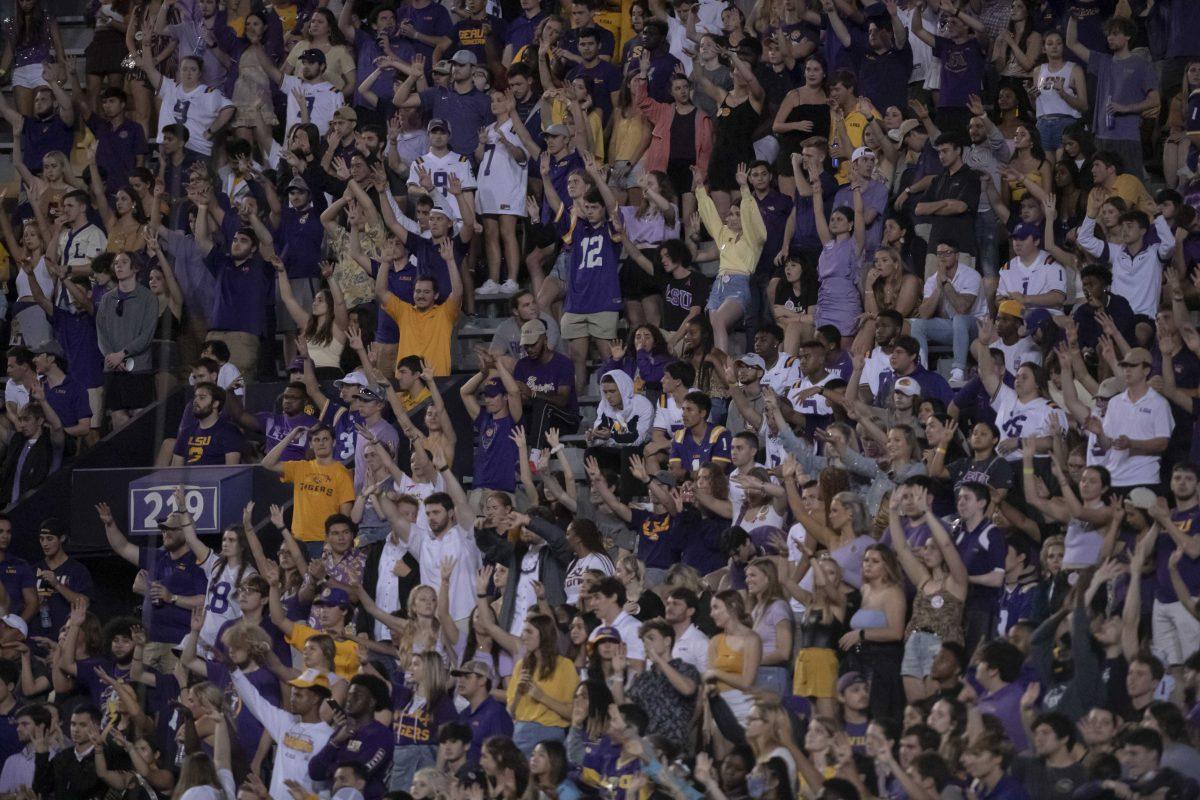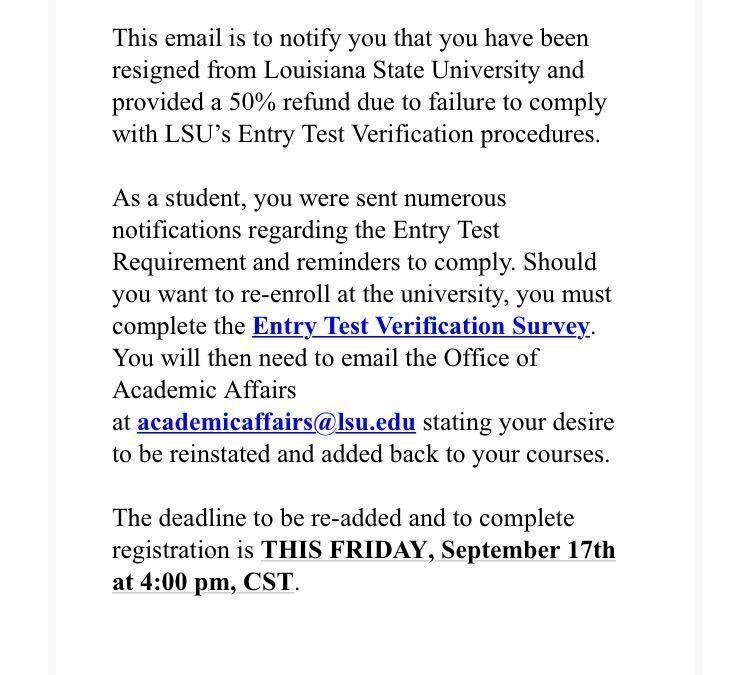LSU Interim President Galligan said he is confident in the University’s ability to operate safely in the midst of COVID-19 despite the challenges that lie ahead in an interview with the Reveille.
Coronavirus testing, enforcing the use of face coverings and providing safe spaces for infected students are only a few of the obstacles the University expects to face.
“We’re not going to get through this by enforcing it,” Galligan said. “We’re going to get through it by embracing it.”
LSU began planning for the fall semester in March, according to Galligan. Months of planning with the Emergency Operations Center and consultations with medical experts led to the creation of the Roadmap to Fall 2020. The Roadmap provides an outline of procedures and protocols set in place to prevent the spread of COVID.
“We tailored our plan to what we thought was the best plan for us,” Galligan said.
The interim president said LSU looked to other schools for comparison and guidance.
Vanderbilt University, also in the SEC, announced it would require all undergraduate students to be tested for coronavirus weekly starting Aug. 31.
“Frequent testing is key to our efforts to slow the spread of COVID-19,” Vanderbilt’s Provost and Vice Chancellor for Academic Affairs Susan R. Wente said in a press release.
Galligan said the University considered mandatory testing before students returned to campus but ultimately felt it wouldn’t be the most effective approach.
“We’ll make the best decision we can with the information we have in the moment,” Galligan said. “Whatever we can do effectively to stay on campus as safe as we can be, we are willing to consider.”
The University provides free testing for students on a voluntary basis at several locations on campus. As of Sept. 9, the total number of cases recorded in the LSU community since Aug. 15 stands at 673.
Media Relations Director Ernie Ballard said testing site closures due to Hurricane Laura and issues with reporting software were to blame for the late update of cases between Aug. 24 and Aug. 31. The University reported 182 positive cases on Aug. 31, a 135-case jump from the initial 47 reported cases from the week prior. The Aug. 31 update was the first update the University had provided since Aug. 24.
Updates are currently posted three times a week on the Roadmap website on Mondays, Wednesdays and Fridays.
On Aug. 30, Ballard said he could not give a definitive answer as to how many tests have been administered so far this semester.
“For total tests, in addition to testing on campus, people are still getting tested on their own off campus, so we don’t have numbers for total tests among the LSU community,” Ballard said.
Galligan announced in the University’s weekly press briefing on Sept. 9 that there have been a total of 4,442 self-reported tests on campus.
Residential Life reserved 75 spaces in on-campus apartments for infected students to be isolated. Fifty spaces, both on and off-campus have been reserved as “quarantine spaces” for those who have been in close contact with the virus.
As of Sept. 9, 77 people are in isolation, and 180 people are in quarantine. These numbers do not include any students or faculty members who have chosen to isolate or quarantine at home.
At the beginning of the school year, the University encouraged students living on campus to return home to isolate or quarantine, according to Ballard. Now, the University wants students to shelter in place, as well as isolate and quarantine on campus.
“We did strongly encourage people to go home at first, but that has evolved with our understanding of the virus and recommendations from state and national experts,” Ballard said. “University leadership has shown that as our knowledge of the virus and protocols evolve so will our plans and preparations.”
An emergency shutdown could occur if the University’s total case numbers rise over capacity, Galligan said. Other factors including the number of positive cases in a given residence hall or class and the possibility of spikes in the Baton Rouge community will also play a role in this decision.
“We don’t want to do it, but if we have to, we will,” Galligan said. “We’ll exercise our best judgement and consult with the medical folks based on these factors.”
Galligan stressed the importance of face coverings to prevent the spread of the virus. A team of six event management members from Landmark Security can be seen on campus enforcing COVID protocols, including encouraging students to wear their masks.
Galligan said he is generally impressed with how well the community has complied with wearing face coverings on campus. He encourages students to continue to wear them while in groups outside, however.
As of now, there have been no known incidents of students refusing to wear masks. Though there is no defined consequence for refusing to comply with the requirement, Galligan said it depends on the circumstances.
The University is aware of one rumor of a large off-campus party thrown by LSU students over the weekend of Aug. 28. Galligan said the gathering was believed to be broken up by BRPD.
Ballard said instances like these are not in the University’s hands.
“One thing students need to realize is [events] off-campus are out of LSUPD’s jurisdiction,” Ballard said. “If the group is violating the governor’s mandates then it will be city police.”
Students are also required to participate in daily COVID-19 symptom checkers. There are currently no set consequences for those who refuse to participate or lie about their symptoms in the questionnaire, but Galligan encourages students to take it.
“It only takes 20 to 30 seconds to fill out,” Galligan said. “I did mine at a red light this morning.”
As football season inches closer, Galligan said he is happy with where they stand in terms of readiness.
“It’s going to look different,” Galligan said. “If the situation turns and we don’t think it’s safe, we will make a U-turn. I don’t think we’ll have to, and I don’t hope we’ll have to.”
The LSU Athletic Department announced new plans for the 2020 football season Wednesday, limiting Tiger Stadium to 25% capacity, roughly 25,000 fans, with no tailgating allowed on campus.
Most SEC schools have announced capacity limits around 20-25%. Texas A&M announced a 25% capacity, and Alabama announced a 20% capacity for the 2020 football season.
Fans will also be required to wear face masks in Tiger Stadium, and social distancing will be mandatory, according to the University’s official release. Students will be placed in assigned seating to allow for physical distancing. The rules are subject to change at any time in accordance with public health guidelines.
“By all of us doing a few things differently this season, we’re going to safely play football with fans in the stands and that’s exciting for everyone who loves LSU,” said LSU Athletic Director Scott Woodward in the press release. “Doing this safely and smartly is our shared responsibility. It’s important for this community, our school and our student-athletes. We’re in this together and we are all excited to play football in Tiger Stadium with the greatest fans in America.”
The Tigers will kick off the season against Mississippi State on Sept. 26, followed by Missouri on Oct. 10, South Carolina on Oct. 24, Alabama on Nov. 14 and Ole Miss on Dec. 5.
Amid the work the University has been doing to control COVID-19, Galligan said there have been no updates on the search for a permanent president.
“They haven’t moved on that conversation yet, but I expect that to be happening soon,” Galligan said. “But until then, here I am.”
COVID-19 cases are rising; Interim President Galligan says LSU will continue ‘embracing’ regulations
By Caitie Zeilman | @caitiezeilman
September 10, 2020
Ben Caplan
Pictured from left to right: LSU’s Interim President, Tom Galligan listens to a question while LSU’s Vice President for Strategic Communications, Jim Sabourin observes on Monday, Feb. 3, 2020 in an interview with Galligan in his office at the University Administration building on LSU’s campus.
More to Discover










